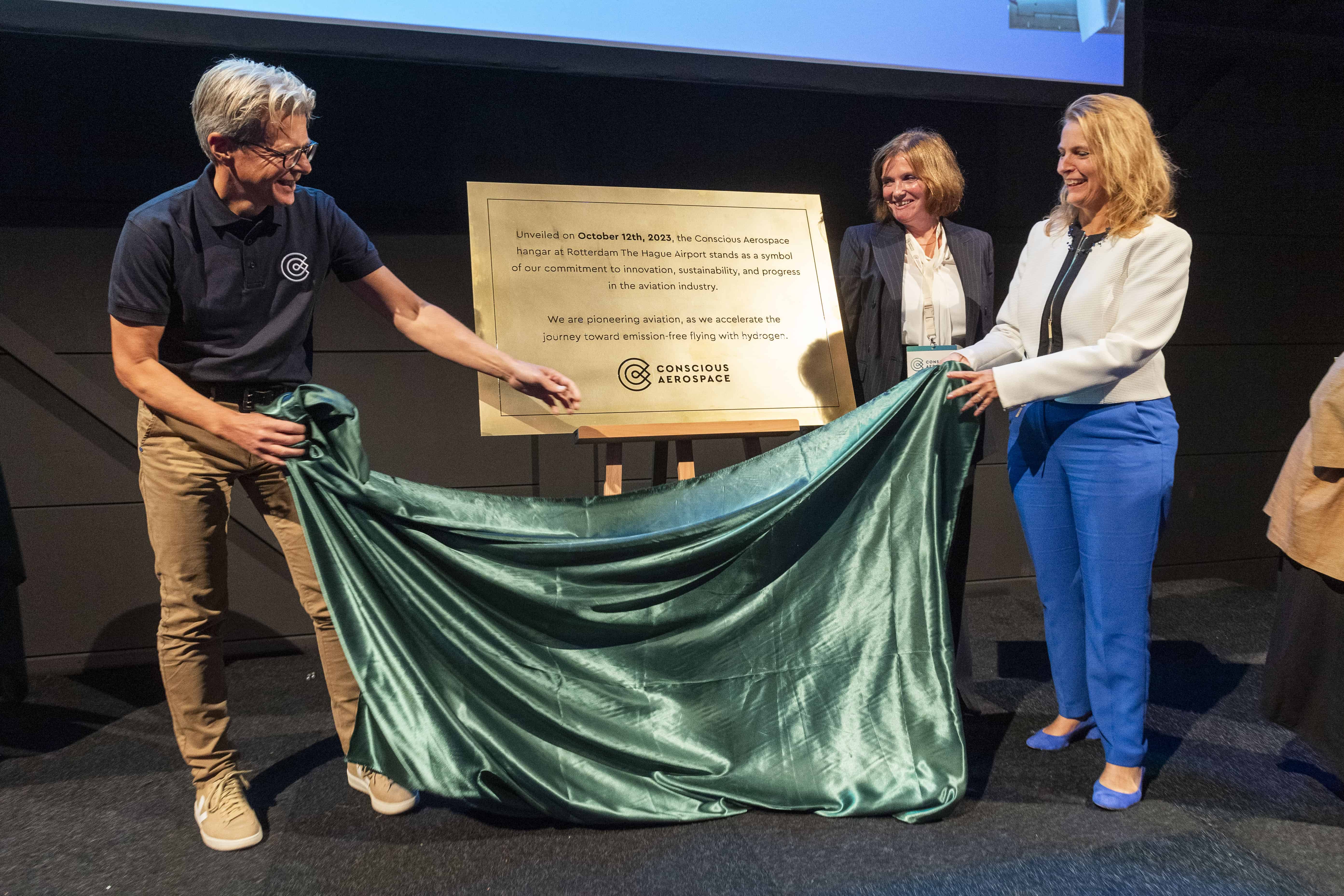
European aerospace company Airbus is teaming up with student team AeroDelft to research the use of hydrogen in aviation. “If everything goes according to plan, we will be sending a two-seater aircraft powered by liquid hydrogen into the air in 2025,” says Wouter van der Linden, Team Manager at AeroDelft.
The two parties will sit down together to flesh out the project over the coming period. Van der Linden is proud of the new collaboration. “When a leading aviation company like Airbus backs you up, that’s confirmation for us that we’re doing a good job.” The collaboration is also opening new doors for the student team. “Through Airbus, we are again coming into contact with other parties who might be able to do something for us in the future.”
The first commercial aircraft
The collaboration is a good fit with the Airbus’s ZEROe program, in which the company is developing the first commercial aircraft that will be powered by hydrogen. The aspiration of Airbus is to be operational this way by 2035. “Quite a few steps still need to be taken in order to achieve this,” says Marloes van Put, Manager Sustainable Aviation Netherlands at Airbus. “AeroDelft not only conducts scientific research, but also puts that knowledge into practice. When you step into the hall of the student team in Delft, you notice that the place is buzzing with energy. They really have a go-getter attitude. That’s great to see. We are really confident that our collaboration is going to be a success.”

Concrete interpretation
One of the things AeroDelft plans to test with hydrogen is their Project Phoenix prototype: an unmanned drone. ” We have already flown on batteries with this last summer and in the next few months we are going to integrate a gaseous hydrogen drive into the prototype. By the way, we would like to have an integrated liquid hydrogen drive and fly with it before this summer,” Van der Linden adds.
But the student team is also taking even more steps. The Phoenix Full Scale should become the very first manned aircraft to fly on liquid hydrogen. The conversion from a gaseous state to liquid hydrogen is a necessary part of this, because in order to store enough hydrogen in an aircraft tank, the fuel must be stored compactly. By 2024, AeroDelft’s full-scale aircraft should be flying on gaseous hydrogen. A year later it will be flying on liquid hydrogen.
Challenges
However, there are still obstacles to overcome in the deployment of liquid hydrogen. Van der Linden: “The liquid form must be stored at an extremely low temperature in a tank of -253 degrees. These tanks are not yet far advanced enough at present. It takes time to start taking steps in this area. Moreover, the certification of a hydrogen-powered aircraft is also a lengthier process. It is an incredibly new playing field and the procedures just take longer. We plan to focus on these challenges over the coming period.”
Van Put can also see the challenges involved with the use of hydrogen in aviation. “The advantage of kerosene is its high energy density. Hydrogen has a larger volume so transporting it in a tank that can be taken on board does pose a challenge. How do we transport hydrogen in a compact way and keep the energy density as high as possible? That’s just one of the questions that we need to find answers to.”
Consequently, in order to realize all these plans, AeroDelft is looking for reinforcements in the near future. Van der Linden: “At the moment, there are 45 of us. But it would be great if we could find more students, also outside of TU Delft, who are just as enthusiastic about sustainable aviation as we are.”
Inspiring
Ultimately, the student team’s grand ambition is to inspire the major players in the aviation industry. “I hope that companies like Boeing and Airbus will soon see that we, a group of students from Delft, have built a hydrogen-powered aircraft in just five years. And that they will then think: if they can do it, so can we. The collaboration with Airbus is a step in the right direction,” Van der Linden concludes.








